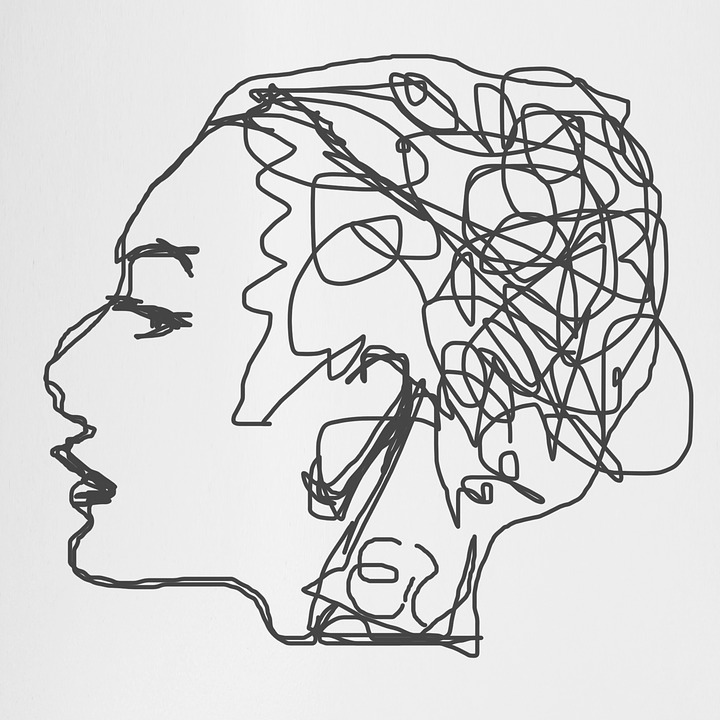


Reinout Wiers’ (Developmental Psychology) question:
Dear Sanne,
In Ask the Expert, I have answered the question into which extent addiction is a disease of the brain. My question for you is about habitual behavior in humans. There is also a view on habitual behavior in humans that states that habitual behavior can be totally unconscious. What is, in your perspective, the evidence for this view on habitual behavior in humans?
Reinout
Sanne de Wit’s (Clinical Psychology) answer:
Dear Reinout,
If habitual behavior is defined as learned responses that are triggered by cues as opposed to being driven by goals, then there is, to the best of my knowledge, no direct evidence to support the view that it can be completely unconscious, nor have there been direct attempts to answer this question empirically.
Having said this, extensive training enables one to perform a behavior extremely rapidly, which certainly suggests that action selection no longer depends on conscious evaluation of the outcome of the behavior in light of current goals. To illustrate, in The Principles of Psychology, William James made the following observation about accomplished pianists: ‘the movements of the hands and fingers follow (…) so immediately upon the sight of the notes that it seems impossible to believe that any but the very shortest and most direct track can be the channel of the nervous communication through which they are called forth’ (1890). Furthermore, it is precisely under speeded conditions that habits interfere with goal-directed behavior. For example, learned stimulus-response associations interfere with the performance of incongruent instructed stimulus-response mappings only in a restricted window of relatively high time pressure (Hardwick et al., 2019). Also, when participants are tested under time pressure, they find it challenging to suppress a cue-triggered response when suddenly it is no longer followed by a rewarding outcome, especially when they are stressed, sleep-deprived, or when adaptive planning strategies are prevented (Chen et al., 2017; Smeets et al., 2019; Verhoeven et al., 2017).
Therefore, conscious interrogation of our inner motives is probably not necessary for the performance of habits, and there is modest evidence that habits can be impervious to conscious efforts to stop or change the behavior. However, certain limitations of existing habit paradigms prevent me from drawing strong conclusions here (e.g., de Wit et al., 2018). We need to develop better experimental paradigms that can distinguish the force of habit from other factors that influence behavioral flexibility. Furthermore, we need to determine the extent to which our carefully controlled experimental models relate to the more complex reality of everyday life in which our actions and sustained behavior change are affected by a complex interplay between multiple considerations, distractors, motivational influences, planning strategies, and – last but not least – habits.
Sanne
Sanne de Wit’s question is for Matthijs Baas (Work and Organizational Psychology):
Dear Matthijs,
As discussed here, habits may persist even when one consciously intends to suppress or change the behavior. This leads me to my question to you: do you think that habitual behaviors (or thoughts) can interfere with creativity? Is there direct evidence to support this idea?
Sanne
References
– Chen, J., Liang, J., Lin, X., Zhang, Y., Zhang, Y., Lu, L. & Shi, J. (2017). Sleep Deprivation Promotes Habitual Control over Goal-Directed Control: Behavioral and Neuroimaging Evidence. J Neurosci., 37(49), 11979-11992.
– de Wit, S., Kindt, M., Knot, S. L., Verhoeven, A. A. C., Robbins, T. W., Gasull-Camos, J., Evans, M., Mirza, H. & Gillan, C. M. (2018). Shifting the balance between goals and habits: Five failures in experimental habit induction. Journal of Experimental Psychology: General, 147(7), 1043-1065.
– Hardwick, R. M., Forrence, A. D., Krakauer, J. W. &Haith, A. M. (in press). Time-dependent competition between goal-directed and habitual response preparation. Nature Human Behavior.
– James, W. (1890). The Principles of Psychology, in two volumes. New York: Henry Holt and Company.
– Smeets, T., van Ruitenbeek, P., Hartogsveld, B. & Quaedflieg, C. W. E. M. (2019). Stress-induced reliance on habitual behavior is moderated by cortisol reactivity. Brain and Cognition,133, 60-71.
– Verhoeven, A. A. C., Kindt, M., Zomer, C. L., & de Wit, S. (2017). An experimental investigation of breaking learnt habits with verbal implementation intentions. Acta Psychologica, 18, 124-136.

Reinout Wiers’ (Developmental Psychology) question:
Dear Sanne,
In Ask the Expert, I have answered the question into which extent addiction is a disease of the brain. My question for you is about habitual behavior in humans. There is also a view on habitual behavior in humans that states that habitual behavior can be totally unconscious. What is, in your perspective, the evidence for this view on habitual behavior in humans?
Reinout

Sanne de Wit’s (Clinical Psychology) answer:
Dear Reinout,
If habitual behavior is defined as learned responses that are triggered by cues as opposed to being driven by goals, then there is, to the best of my knowledge, no direct evidence to support the view that it can be completely unconscious, nor have there been direct attempts to answer this question empirically.
Having said this, extensive training enables one to perform a behavior extremely rapidly, which certainly suggests that action selection no longer depends on conscious evaluation of the outcome of the behavior in light of current goals. To illustrate, in The Principles of Psychology, William James made the following observation about accomplished pianists: ‘the movements of the hands and fingers follow (…) so immediately upon the sight of the notes that it seems impossible to believe that any but the very shortest and most direct track can be the channel of the nervous communication through which they are called forth’ (1890). Furthermore, it is precisely under speeded conditions that habits interfere with goal-directed behavior. For example, learned stimulus-response associations interfere with the performance of incongruent instructed stimulus-response mappings only in a restricted window of relatively high time pressure (Hardwick et al., 2019). Also, when participants are tested under time pressure, they find it challenging to suppress a cue-triggered response when suddenly it is no longer followed by a rewarding outcome, especially when they are stressed, sleep-deprived, or when adaptive planning strategies are prevented (Chen et al., 2017; Smeets et al., 2019; Verhoeven et al., 2017).
Therefore, conscious interrogation of our inner motives is probably not necessary for the performance of habits, and there is modest evidence that habits can be impervious to conscious efforts to stop or change the behavior. However, certain limitations of existing habit paradigms prevent me from drawing strong conclusions here (e.g., de Wit et al., 2018). We need to develop better experimental paradigms that can distinguish the force of habit from other factors that influence behavioral flexibility. Furthermore, we need to determine the extent to which our carefully controlled experimental models relate to the more complex reality of everyday life in which our actions and sustained behavior change are affected by a complex interplay between multiple considerations, distractors, motivational influences, planning strategies, and – last but not least – habits.
Sanne
Sanne de Wit’s question is for Matthijs Baas (Work and Organizational Psychology):
Dear Matthijs,
As discussed here, habits may persist even when one consciously intends to suppress or change the behavior. This leads me to my question to you: do you think that habitual behaviors (or thoughts) can interfere with creativity? Is there direct evidence to support this idea?
Sanne


